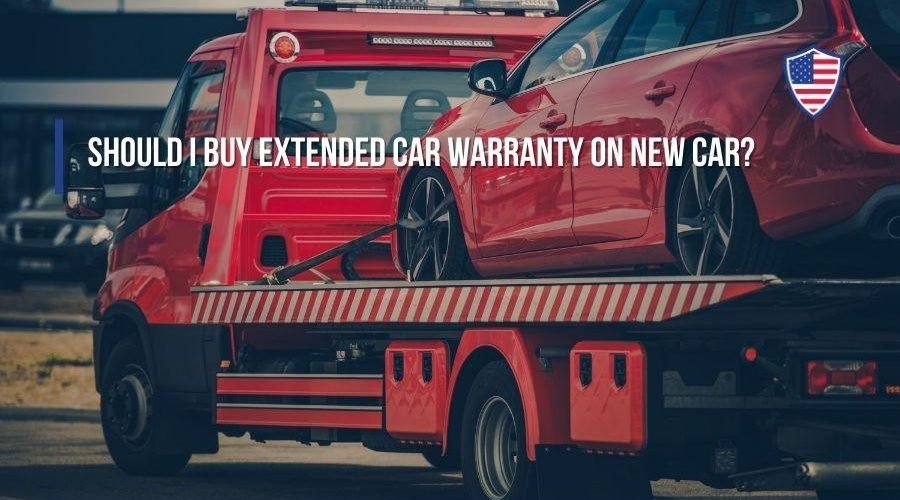Buying a new car is a significant investment, and it’s natural to want to protect that investment by any means possible. One option often presented to car buyers is an extended car warranty, which can provide coverage beyond the manufacturer’s warranty. While an extended car warranty can offer some benefits, it comes at an additional cost. In this discussion, we will examine the benefits and drawbacks of purchasing an extended car warranty on a new car and explore the factors you should consider before deciding. Ultimately, the goal is to help you make an informed decision about whether or not to buy an extended car warranty for your new car.
Table of Contents
Understanding Extended Car Warranty
An extended car warranty is a service contract that provides additional coverage for a specific period or mileage beyond the manufacturer’s warranty. It’s an insurance policy that covers the cost of repairs and replacement parts in case of mechanical breakdowns or other problems during the coverage period.
Extended warranties typically come with a range of coverage options that can vary in terms of duration, mileage, and level of protection. For example, some warranties may cover only major engine and transmission components, while others may include coverage for additional systems such as air conditioning, electrical, and suspension systems.
It’s important to note that extended warranties are not the same as car insurance. Car insurance covers damages resulting from accidents, theft, and other incidents, while extended warranties cover the cost of repairs resulting from mechanical or electrical breakdowns. Getting an extended car warranty is a good option if you want to save money on car repairs. However, comparing prices and coverage levels are just some tips to help you get better car insurance quotes and find the best deal.
Extended car warranties can offer several benefits to car owners, including:
Peace of mind: One of the primary benefits of an extended car warranty is the peace of mind that comes with knowing that certain repairs and maintenance are covered beyond the manufacturer’s warranty period.
Protection against unexpected repair costs: Extended warranties can help protect against unexpected and potentially expensive repairs that may arise during the vehicle’s life. This can be particularly beneficial if you are on a tight budget or if the repair costs would be financially burdensome.
Convenience: With an extended car warranty, you don’t have to worry about finding a reputable repair shop or negotiating prices, as the warranty provider will handle these tasks.
Potential resale value: If you decide to sell your car before the extended warranty period expires, the remaining warranty coverage may make the car more attractive to potential buyers.
Customizable coverage: Many extended warranty providers offer a variety of coverage levels and options, allowing you to customize your coverage to your specific needs and budget.
Overall, an extended car warranty can provide valuable protection and peace of mind, especially for those who plan to keep their car for a long time or are concerned about unexpected repair costs.
Drawbacks of Extended Car Warranty
While there are benefits to purchasing an extended car warranty, there are also some drawbacks to consider. Here are some of the most common drawbacks of extended car warranties:
Cost: Extended car warranties can be expensive, and the cost can vary significantly depending on the coverage level and provider. In some cases, the warranty cost may outweigh the cost of potential repairs.
Limited Coverage: Some extended car warranties have limited coverage, which means that not all repairs are covered. This can result in unexpected out-of-pocket expenses, even with the warranty.
Exclusions and Limitations: Extended car warranties may have exclusions and limitations that can affect your coverage. For example, some warranties may not cover certain types of repairs or may only cover up to a certain dollar amount per repair.
Deductibles: Some extended car warranties require a deductible, meaning you’ll need to pay a certain out-of-pocket amount before the warranty coverage kicks in. This can add to the overall cost of the warranty.
Denial of Claims: There is always the risk that the provider may deny a warranty claim, which can be frustrating and costly for the vehicle owner.
Limited Choice of Repair Shops: Some extended car warranties may require you to use a specific repair shop or network of shops, which can limit your choices and may not be convenient for you.
Overall, it’s important to carefully consider the potential drawbacks of an extended car warranty before purchasing. You should weigh the cost of the warranty against the potential benefits and carefully evaluate the coverage, exclusions, and limitations to determine if the warranty is a good investment for your situation.
Factors to Consider Before Purchasing Extended Car Warranty
Before purchasing an extended car warranty, there are several factors you should consider to determine if it’s the right choice for you.
Cost: Consider the warranty cost and whether it fits your budget. Compare the warranty cost to the potential cost of repairs to determine if it’s a worthwhile investment.
Coverage: Evaluate the coverage offered by the warranty and determine if it meets your needs. Consider the types of repairs covered, the coverage length, and any exclusions or limitations.
Provider Reputation: Research the reputation and financial stability of the warranty provider. Look for reviews and ratings from other customers, and ensure the provider is financially stable and can honor their obligations.
Vehicle Reliability: Consider the reliability of your vehicle and the likelihood of needing repairs. The warranty cost may not be justified if you have a highly reliable vehicle.
Manufacturer’s Warranty: Evaluate the length and coverage of the manufacturer’s warranty. You may not need an extended warranty if the manufacturer’s warranty already provides sufficient coverage.
Deductibles and Fees: Evaluate the cost of any deductibles or fees associated with the warranty. These costs can add up, so it’s important to consider them when evaluating the overall cost of the warranty.
Terms and Conditions: Carefully read the terms and conditions of the warranty to ensure that you understand the coverage and any limitations.
Overall, it’s important to take a thoughtful approach when considering an extended car warranty. By evaluating these factors, you can determine whether an extended warranty is a good investment for your situation.
Conclusion: Should You Buy an Extended Car Warranty on New Car?
Whether or not to buy an extended car warranty on a new car is a personal decision that depends on various factors. An extended warranty can offer peace of mind, protect against unexpected repair costs, and increase resale value. Still, it can also be expensive and may have limitations and exclusions that affect its coverage.
Before making a decision, it’s important to carefully consider the cost, coverage, provider reputation, vehicle reliability, manufacturer’s warranty, deductibles and fees, and the terms and conditions of the warranty. By evaluating these factors, you can decide whether an extended car warranty is a worthwhile investment for your situation.
You may not need an extended warranty if you have a highly reliable vehicle and a good manufacturer’s warranty. However, it may be a good investment if you want the added protection and peace of mind that an extended warranty provides, and the cost is within your budget. Ultimately, purchasing an extended car warranty should be based on your needs and circumstances.





